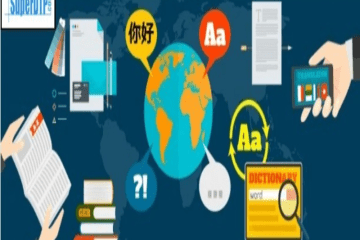What is e-learning localization?
E-learning localization is the process of adapting a foreign language learning materials to a specific target audience.
It is a form of translation in which the content and context are adjusted to suit the needs of an individual or group that speaks or reads a different language.
There are two types of localization:
1) Translation
2) Adaptation
Translation involves translating all the text from one language to another, whereas adaptation can be done by changing any or all aspects of a product such as texts, images, sounds and videos to suit a different culture or region.
How E-learning Localization Works
E-learning localization is the process of adapting a course to a specific language or culture. In this process, there are three phases:
1) Designing the course for localization
2) Translating the course
3) Testing and implementing localized courses
Why Business Needed Elearning Localization Services
Businesses need the e-learning localization services because they want to be able to reach out and connect with people from all over the world. It helps them reach out to more customers by making their content accessible to more people. This means they need their content to be translated into different languages so that they can have an audience in those areas as well.
Improves Market Expansion
Localizing your content in many target languages will help connect with the employees. The better the employees understand your training content, the more salutary it is for the company.
Understanding the company’s culture will help employees to connect with the audience in their local place. When employees do their job well, you will see growth in your company’s development.
Employee Satisfaction
When a company organizes its training , it makes it seem like it cares about the employees. In addition, localized e-learning content helps users better understand different concepts in their native language.
This will bring about employee satisfaction, leading to better retention levels. Have you seen employees who leave the company because they are dissatisfied?
Unity in Diversity
E-learning localization services unify learning in this diverse world. Learning must be equal for all workers in the company.
Better Learning Impact
No matter where you come from, nothing brings comfort to your native language. So, if organizations localize elearning content, the learning also improves. The easier the learning is, the faster it is completed.
Better Engagement
What does a better education bring? If employees learn and understand better, their engagement level will increase.
And good engagement will keep employees productive all the time. Therefore, content aggregation is not only beneficial for users, but also helps organizations in the long run.
Benefits Of E-Learning Localization
E-learning localization is the process of adapting e-learning content for a specific locale. It is an important aspect of globalization and localization, as it helps to make courses more accessible to learners in that locale.
In order to reach a global audience, e-learning localization is essential. E-learning localization can help companies with their global expansion efforts. It can help them reach a larger audience and reduce the costs of international marketing.
This process can be done manually or with the help of tools. The benefits of E-learning localization are numerous:
– Reduced cost of international marketing
– Better engagement with learners from different cultures and backgrounds
– increase scalability
– Improved learner experience
Recommended Read:: 5 Reasons Why Desktop Publishing Is Important
Why Should You Choose Super DTP For E-Learning Localization Services?
E-learning localization services are in demand these days. The demand for such services is increasing due to the globalization of the world and the need for people to learn new languages.
Super DTP offers professional E-learning Localization services to our customers so that they can take their business global and reach out to a wider audience. We have a team of experts who are highly skilled in English, Hindi, Mandarin, Cantonese and other languages.


